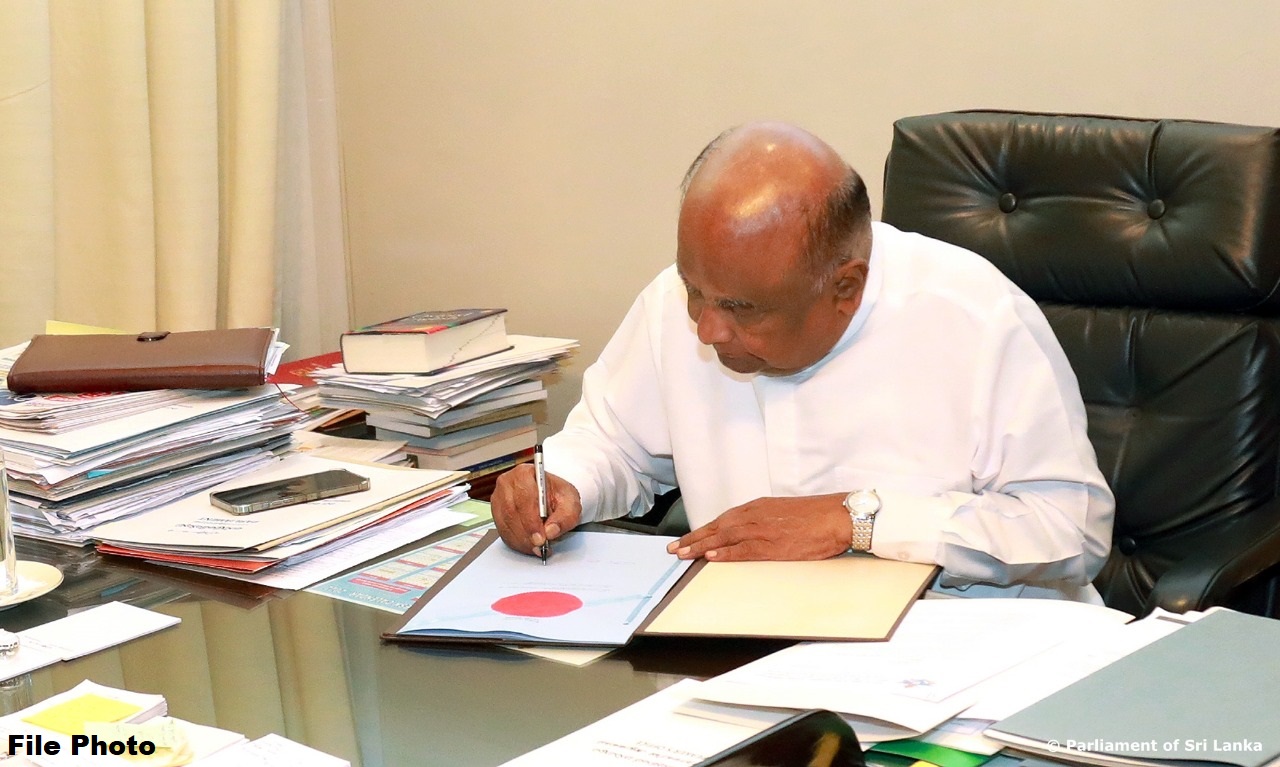Speaker endorses certificate on Sri Lanka Telecom Amendment Bill
The Deputy Speaker of the Parliament Ajith Rajapaksa announced the House that in terms of the provisions of Article 79 of the Constitution of the Democratic Socialist Republic of Sri Lanka, Speaker Mahinda Yapa Abeywardena has endorsed the certificates on the Bills titled “Sri Lanka Telecommunications (Amendment)” and “Shaili Educational Foundation (Incorporation).”
The announcement was made during the ongoing Parliamentary proceeding today (23).
On July 09, the Sri Lanka Telecommunications (Amendment) Bill was passed in Parliament with amendments.
Under the new telecommunications bill, Sri Lanka will introduce a new license category that will allow ‘Starlink’ service to enter the country’s telecommunications space as a licensed service provider, as earlier stated by State Minister of Technology Kanaka Herath.
The initiative of integrating the global ‘Starlink’ network with Sri Lanka is said to be aimed at addressing the Wi-Fi connectivity issues, particularly in areas outside Colombo.
Sri Lanka granted ‘Starlink’ preliminary approval in June after fast-tracking the process. ‘Starlink’ will have to pay a tariff for the license, which will be issued by the country’s telecommunications regulator, according to State Minister Kanaka Herath.
President Ranil Wickremesinghe met with billionaire investor Elon Musk on the sidelines of the 10th World Water Forum High-Level Meeting being held in Indonesia on May 19, during which they have discussed the implementation of ‘Starlink’ in Sri Lanka.
Musk was in Indonesia’s resort island of Bali to launch Starlink satellite internet service in the world’s largest archipelago nation.
The billionaire head of Tesla and SpaceX and owner of social platform X had launched the service alongside Indonesian President Joko Widodo in a ceremony at a public health clinic in Denpasar, the provincial capital of Bali.
Unlike traditional telecommunications providers, which prioritise the most populated urban areas, Starlink aims to provide global coverage, extending internet connectivity to even the most remote corners of the planet.
Starlink can provide internet access to virtually any location on Earth with a constellation of LEO satellites that can be re-positioned at any point, and according to experts, reliable internet access is possible, whether the user operates in the Congo, the Arctic, or on an oil rig located hundreds of miles offshore.
So far, Starlink has more than 02 million active customers and is available on all seven continents and in over 60 countries

